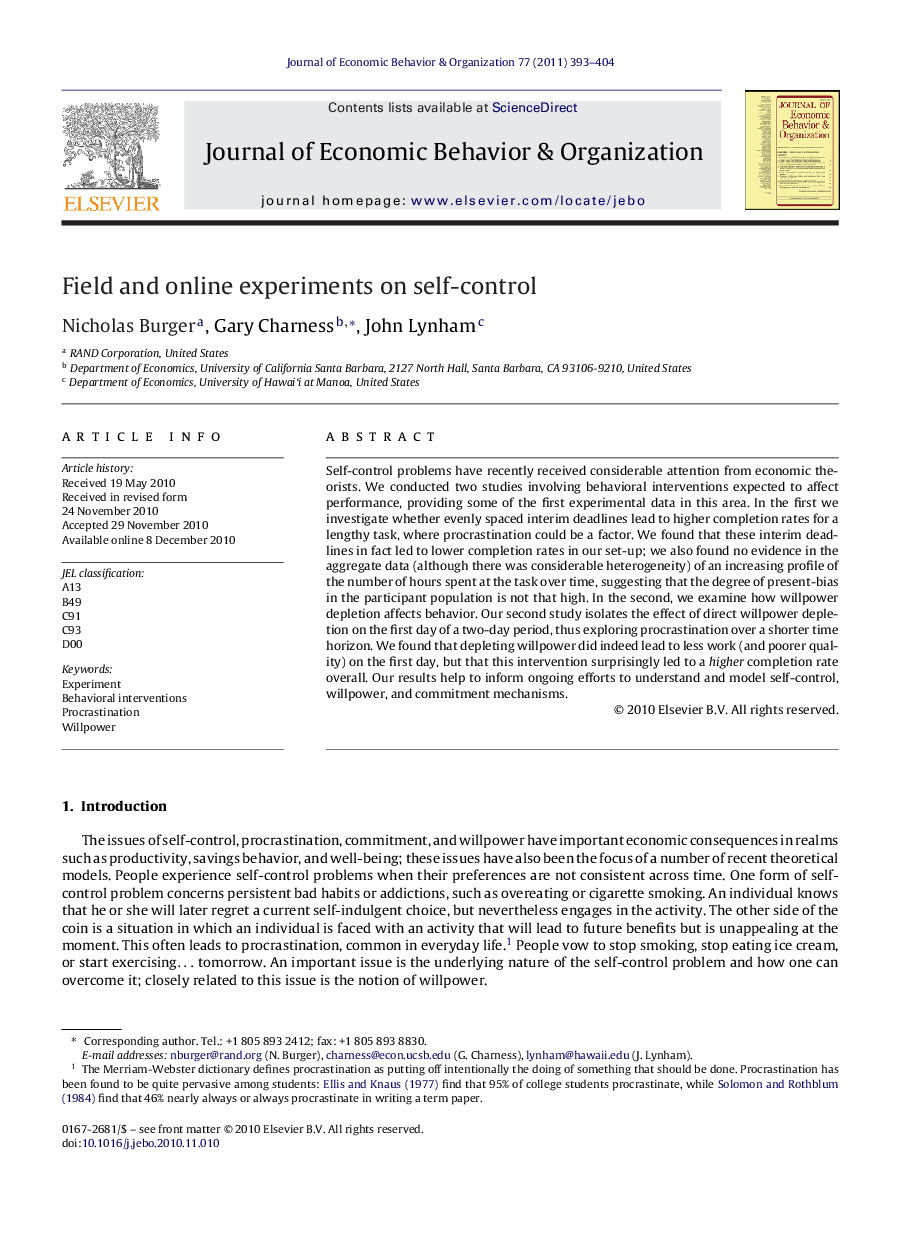| Article ID | Journal | Published Year | Pages | File Type |
|---|---|---|---|---|
| 884169 | Journal of Economic Behavior & Organization | 2011 | 12 Pages |
Self-control problems have recently received considerable attention from economic theorists. We conducted two studies involving behavioral interventions expected to affect performance, providing some of the first experimental data in this area. In the first we investigate whether evenly spaced interim deadlines lead to higher completion rates for a lengthy task, where procrastination could be a factor. We found that these interim deadlines in fact led to lower completion rates in our set-up; we also found no evidence in the aggregate data (although there was considerable heterogeneity) of an increasing profile of the number of hours spent at the task over time, suggesting that the degree of present-bias in the participant population is not that high. In the second, we examine how willpower depletion affects behavior. Our second study isolates the effect of direct willpower depletion on the first day of a two-day period, thus exploring procrastination over a shorter time horizon. We found that depleting willpower did indeed lead to less work (and poorer quality) on the first day, but that this intervention surprisingly led to a higher completion rate overall. Our results help to inform ongoing efforts to understand and model self-control, willpower, and commitment mechanisms.
Research highlights▶ We try interventions designed to help with procrastination and to deplete willpower. ▶ Imposing evenly-spaced interim deadlines was surprisingly ineffective. ▶ Depleting willpower led to lower immediate, but higher eventual, performance. ▶ Our work suggests future research directions in the area of self-control.
